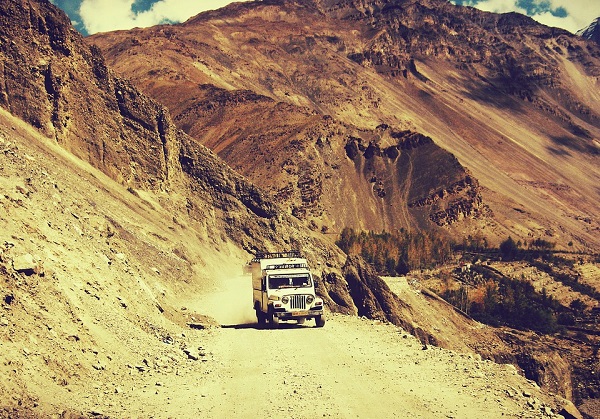
If you spend a lot of time searching for gold, there is a good chance that you will find yourself in some pretty remote country, far away from the comforts of the city. You need to be prepared to take care of yourself in case anything unexpected happens. Preparation can literally be a lifesaver, so it is important to equip yourself with everything you need to safely explore the backcountry.
Before You Leave Home
Always let someone know where you are going and when you will be back. This is easily the single most important safety tip, as it may take someone weeks to find you if they have no idea where you have gone. Tell your wife or friend where you will be, and let them know that you will give them a call when you return. That way if they don’t hear from you by a certain time they can start worrying. A simple note that says something along the lines of “Going gold prospecting at Nugget creek, be back Sunday evening” can be a lifesaver if something unexpected happens.
Prepare Your Vehicle
Make sure that your vehicle is in good working condition, and up to the task. If your going to be on dirt roads, you should have a 4-wheel drive vehicle with high clearance. Make sure all mechanical parts are in good working order with all fluids topped off. Your tires should be in good shape with good tread. Make sure you have a spare tire with good tread also (I know several prospectors who carry two spares) and the jack, lugs, and everything you need to change a spare. There is nothing worse than changing your tire only to find that your spare tire is also flat.
Maps
Once you have an idea of where you are going, make sure you have the proper maps and understand the area before you venture to far off the beaten path. The worst thing that you can do is continue driving farther and farther once you are turned around. If you aren’t sure of where you are, turn around and backtrack the same way out as you came from. More times than not, venturing further in will only make matters worse, so stay smart and don’t get let your quest for gold put you in a dangerous situation. Backtrack to an area that is familiar to you, read you maps, and make sure you know where your going.
Backup Tools
Now lets talk about the things that everyone should carry in their vehicle. We already discussed that your prospecting rig should be in good working order, but you should also carry extra equipment to keep it running if something unexpected happens. In addition to carrying a spare tire, I also carry some basic tools, duct tape, spare oil, brake fluid, and antifreeze. I don’t want to be stranded because my vehicle is inoperable, so I try to anticipate anything bad that may happen and prepare for that scenario.
Now lets talk about what happens if the worst should happen, maybe you get your vehicle stuck in the mud and you have to spend one or more days out in the wild.
If you are not 100% sure of your location, then STAY WITH YOUR VEHICLE! By staying with your vehicle, searchers will have a much better chance of finding you. Just talk to anyone who works with Search & Rescue and they will be able to tell you countless stories of people who wandered away from their vehicles to get help and died because they were unprepared to spend the night out in the wild. This is a serious matter, so don’t be foolish because you are too impatient or embarrassed to wait for help.
Food & Water
You need to equip your vehicle with everything that you need to survive several days. These are the basics; food, water, and shelter. This seems like common knowledge to some, but it is amazing how often people venture into the backcountry with a very limited amount of supplies. You need LOTS of water, not just a few bottles rolling around on your floorboards. Throw a 24 pack of bottled waters behind your seat and leave them there for emergencies only. Make sure you have plenty of food.
Water is more important than food, but if you get in a situation where you need to spend a few nights in your vehicle, you will be glad to have a few dehydrated meals in you rig. I personally go to the bulk bin at the grocery store and get several pounds of trail mix, and keep it in my storage along with the water for emergencies only.
I never touch it unless I need to, that way I know it will be there if and when I need it. Shelter is also very important and by staying with your vehicle you will be partially protected from the elements, but always have at least a sleeping bag or a few blankets stored in your vehicle as well. You would be surprised how cold it can get at night, even desert summers.
Follow these simple precautions and you will be prepared should the worst happen.
